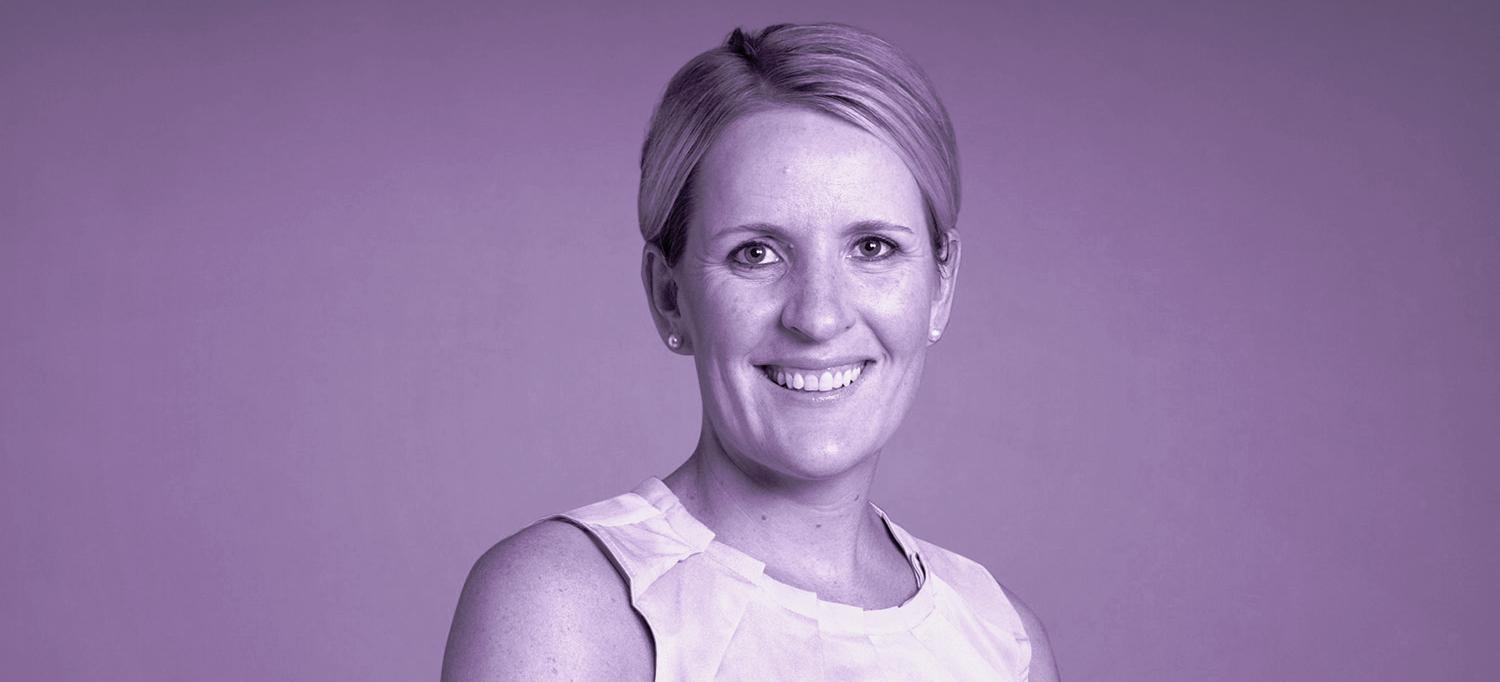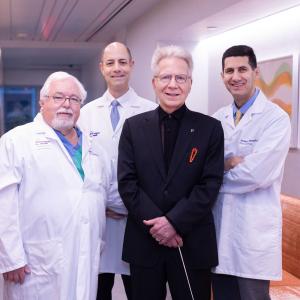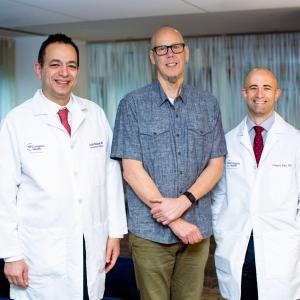The Coronavirus Poses a Daunting Challenge to First Responders, but for Catherine Jamin, MD, Who Oversees a Large Team of Emergency Medicine Doctors at NYU Langone, Caring for Patients in Crisis Reaffirms Her Career Choice

Dr. Catherine Jamin and her team of emergency medicine doctors at NYU Langone Health are on the front lines of healthcare providers caring for patients in crisis, as an outbreak of COVID-19 strikes New York City.
Photo: NYU Langone Staff
In the battle against a formidable foe known as 2019 coronavirus disease (COVID-19), Catherine Jamin, MD, stands in the first row of the front lines. As chief of service and critical care for the nationally renowned Ronald O. Perelman Department of Emergency Medicine at NYU Langone Health, she oversees clinical operations and a team of specialists who evaluate, triage, and treat patients. Here, she shares her unique perspective as a first responder in the thick of the action.
What does it feel like to be at the forefront of such a fast-moving pandemic?
It’s certainly challenging to assess patients while the threat is not only evolving, but advancing rapidly. But it validates why I chose medicine as a profession and emergency medicine as a specialty—to care for people in crisis. Keeping patients safe is our highest priority. It’s at the core of what we do and every decision we make.
How does this outbreak compare with other clinical challenges you’ve faced?
Pandemics are something we’ve all read about and prepared for, but here we are. The pace of this outbreak makes is particularly daunting. We update our clinical guidelines and protocols daily to keep up with the evolution of this disease process and its advance in New York City.
What has surprised you most?
The high demand for our Virtual Urgent Care service—we’re now seeing about 600 patients per day, and the number is growing daily. Many of these patients have infectious symptoms, but we’re able to care for them remotely. They’re being socially responsible by not traveling to their doctor or an emergency department. To meet the growing demand, we’re calling upon our entire faculty across all medical services and rapidly training and equipping them for telemedicine. We’ll keep opening up appointment slots until there are slots that are unfilled. This is a service we’re very proud to offer.
What’s the most common question you’ve been fielding from family and friends?
My family and friends realize that I have to work a lot of hours, so they haven’t really been asking me much. Instead, they’ve been asking how they can help me at home, which I really appreciate. When I do get a question, it’s usually about whether they should attend social events, what precautions to take, and when to seek medical care.
How do you reassure anxious patients?
We speak to the numbers—the fact that 80 percent of these illnesses are mild. Most people don’t need to worry even if they do get sick. We speak with patients, assess their symptoms and individual risk, and educate them about quarantining at home and keeping their family members safe. We reassure them that most people are at low risk, and tell them which symptoms to watch out for that would require a visit to the emergency department.
Have there been any inspiring moments for you?
I was observing one of our Virtual Urgent Care visits—a patient from New Rochelle who was very symptomatic. She sought care through telemedicine so as not to expose others, but our team recommended that she go to the hospital. That was very inspiring to me. It reminded me that we’re providing a great service to patients who may have limited access to care, and many of them are making good use of it.
What is your own personal strategy for managing the stress?
Right now there’s no time for outside activities, so I draw comfort from my team and my supportive husband and family.
Amid all this turmoil, what reassures you?
I’m reassured by the preparedness and readiness of NYU Langone Health. I’m also heartened by the dedication of our team—not only the attendings, residents, and physician assistants, but also the nurses, medical assistants, and nonclinical staff. Everybody just steps up and pitches in. That really relieves the stress. We’ve all been working together seamlessly, learning from each other’s different experiences. That’s how I know we’re going to take good care of our patients and meet their needs.

